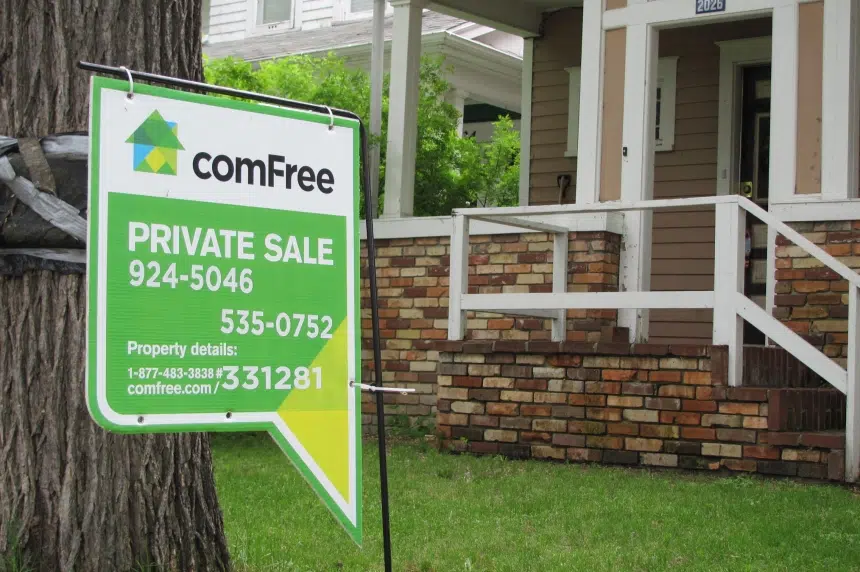The Bank of Canada has raised interest rates by a quarter per cent, up to 1.25 per cent, which will likely have an impact on people with variable rate mortgages.
Regina-based mortgage broker Carrie Cardinal explained this change has pushed banks to raise the prime rate by a quarter per cent up to 3.45 per cent from 3.2 per cent.
“What that means is per $100,000 of a mortgage balance that you carry, your payment will increase roughly $12 per $100,000,” Cardinal said. “So if you have a $300,000 variable rate mortgage, you’re looking at an increase of about $36 per month.”
Cardinal said most banks have already increased fixed mortgage rates in advance of this change by the Bank of Canada. She doesn’t expect to see a big change in fixed interest rates for people looking to borrow money to buy a house in the coming months.
This interest rate hike follows two other quarter per cent rate increases in the second half of 2017.
“This is the third increase so people start go get a little bit worried because we’ve already seen a couple of increases. We have to keep in mind that the rates have been so low for so long that we kind of got accustomed to those extra low interest rates,” Cardinal commented.
New mortgage rules provide buffer to interest hikes
Cardinal also points out new mortgage stress test rules are meant to ensure buyers can afford up to a two per cent increase to interest rates before they are approved. This change came out in 2017 to extend the stress test to apply to buyers who have a 20 per cent down payment or more.
She said most people buying their first or even second homes do not have down payments of 20 per cent.
“Where it’s going to hit the largest amount of consumers is people that have fixed incomes. So maybe people that are nearing retirement or have already retired,” Cardinal explained.
She added the change is more likely to affect people who save their money for a larger down payment because banks will not offer the same leniency to approve mortgage rates based on their income.
“I would say that maybe a buffer is a good thing. If you’re very, very close on your monthly budget if rates are to rise by a quarter of a per cent and you couldn’t afford, let’s say a $36 shift in your payment, perhaps your numbers are a little bit too tight to be purchasing that house.”
While it may sound like a hard rule, Cardinal said it is put in place to protect buyers from not being able to afford their mortgage payments when the rates go up in this way.











